Story Time: When Bikes Aren't the Answer
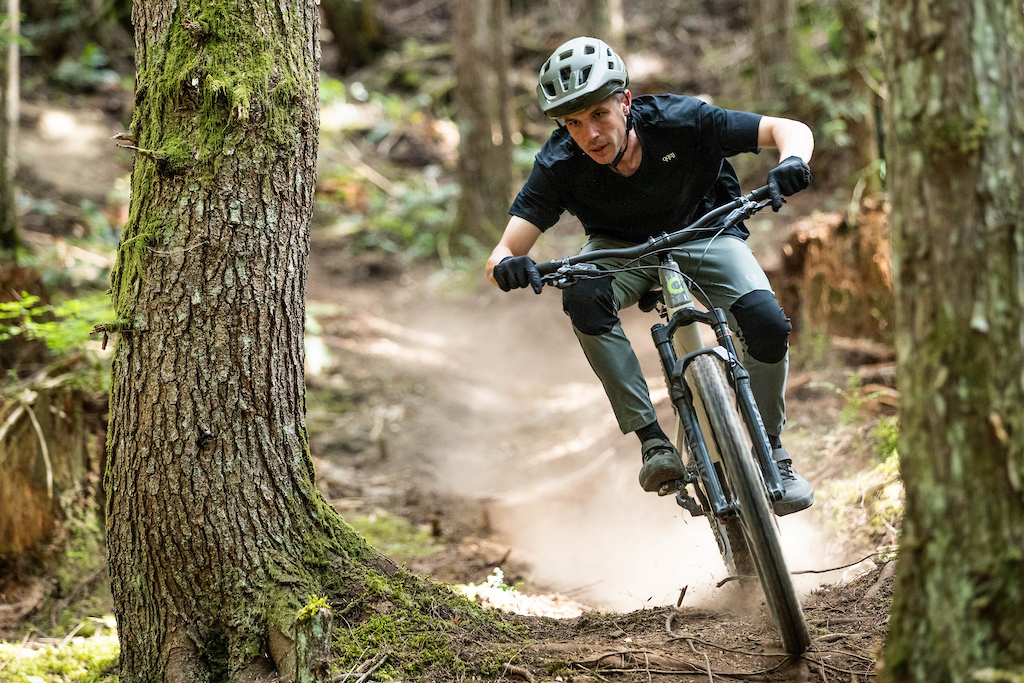
I didn't know what photos to include, so have prepared a selection from the year of me looking mediocre at best.
Words: Henry Quinney
Photography: Tom Richards
Three Tragedies Away from Homelessness
My father, half Monty Python caricature and half purveyor of anecdotal wisdom, believes that any of us are only ever three tragedies away from homelessness. He once told me about a family friend who had spent most of their life in middle-class comfort but ended up living on the streets. Something about that reinforced my understanding of the human condition—that any of us could suffer misfortune, and that recovery was as much about timing and balance as it was about healing your wounds.
I think a lot about the privileges bestowed upon me. In the landscape of media, it's something we try to be cognizant of, and rightfully so. “Middle-class white guy who's only ever known comfort explains why electronic gears are a must-have” isn't exactly compelling reading. Privilege extends to many different places though—where you're from, the people you've known, the company you've been granted, and the resources you've had access to.
The greatest privilege I've ever known is coming from my family. We didn't always have all too much, but I wouldn't have had it any other way. Coming back to your centre after being knocked is a lot easier with the support of another's hand, and bracing on your good leg is easier still with the crutch of sympathy.
The Privilege of Independence
I began running when I was seventeen. It felt strange to have a hobby that wasn't reliant on other people; I didn't have to organise anyone to play, I didn't have to keep time with anyone, or wait at the rugby field. I could just run until I didn't have any running left in me. I wasn't particularly good, mind you, but I would run around the rural lanes that I grew up in.
I had some £15 tennis shoes that I felt I had gamed the system with by buying them a size too big so they wouldn't rub, and some £4 shorts and a bright yellow cycling jersey that I got off eBay. The chaffing and friction were, as you can imagine, unpleasant. I'm sure at times I was nothing short of a mobile fire hazard as cheap nylon met puckered flesh.
I remember my first marathon distance was 13 times around the two-mile block. From then on, I just wanted to go as far as possible. Never very quickly admittedly, but I would fill a backpack with cherry-bakewell tarts and head into the countryside until coming home when I felt something had been satisfied. Everything would have a dull ache as I lay there on my side, watching Formula One on Sunday afternoons.
At a similar time, I got into road cycling. Again, I wasn't particularly good but as a seventeen-year-old, there was something just amazing about riding what felt like huge distances in a single day.
I didn't finish the UK equivalent of high school and a wave of independence suddenly came over my entire life. I worked at the local hospital making sandwiches for the patients and for the first time in my life I had disposable income. Again what an example of amazing privilege, that my introduction to the world of work was more about enjoying my earnings than putting food on the table.
I would obsess each night on ChainReaction over the details between Sora and Tiagra, researching with incredulity that “compact” referred to what seemed like seven different aspects of design in road cycling. I eventually bought a bike, a white Trek 1.2 with red accents, for £525. I’d never had anything so nice or new before. I couldn't believe it. As a cycling-obsessed teenager, I was fascinated with Lance Armstrong and there was a silly allure to riding a Trek. Their scandals notwithstanding, Lance’s high-cadence style seemed so much more elegant than the slogging of Indurain, Ullrich, and the other riders that featured in early YouTube montages dedicated to them.
Alex
My cousin Alex later introduced this thing to me called mountain biking. He taught me to aim for the V in the roots, and that you could get different tyres to suit the conditions. It was wild to me, like some strange fairytale experience where you could suspend all of the rules about what you should or shouldn't do, and just do exactly what you wanted. Go fast, go slow, crash, burn—managing all these things and their proximity to your own experience felt like a new frontier of liberation.
I got an entry-level Specialized Pitch hardtail (not the good one, sadly) and became obsessed with working on it. Needless to say, I broke everything as I tried to customize or tune my bike for the local bridleways that were almost exclusively flat.
I soon found mountain biking is a funny thing. Unlike road cycling, there wasn't a widely held understanding that we are all nerds. One half was 40-year-old men wearing translucent lycra, getting into arguments with horse riders over who has the right to ride a footpath, when in fact neither of you do. The other half was about being cool.
Alex exposed me to a side of bikes that I never knew about. He was far more comfortable with danger than me. I remember him once riding along a frozen canal near Congleton as if it was nothing. He always had the ability to do things that were just the right amount of stupid - an ability I’ve always moderated with too much caution and fear.
We once went to a race in Wales. At the time Alex was working his regular 60-hour week, and running on fumes was something of a lifestyle choice. He picked me up at a service station just off the M5 motorway in his mother's tiny Peugeot 205 and we must not have arrived until 2 AM.
During the race, and I don’t think Alex would mind me saying this, we were significantly outgunned. Alex's rear brake stopped working halfway through the day. At the top of one of the stages, a somewhat self-important-know-it-all approached Alex to tell him that his rear tire was on back-to-front in not a particularly kind way. I thought the man was an arse, but Alex casually told him that considering that he only had one brake the orientation of his tire was the least of his worries, and we all laughed.
I was always very envious of Alex’s relaxed nature and ability to make strangers laugh with his honesty. He could always do it without even trying, and it’s something I’ve been trying to replicate for years without it ever quite feeling natural.
On the following stage, Alex's front brake caliper snapped clean off, sending him headfirst into the rocks. We laughed about it a lot that night, despite both of our weekends being an absolute disaster.
Being cool is never something that has come easily to me. I tried it once in 2013 and, after a brief dalliance with a backward cap, I realized it was never to be. With Alex, however, I’ve often had suspicions that he was quite cool.
It was never just one thing but rather a myriad of clues—the tan-colored work boots that were somehow clean yet rugged, which even grandma liked. Or maybe how as a teenager he smoked and drank, but managed to look like an adult while doing so, whereas normally it manages to infantilize. Alex was also far more easy going than I was. For instance, he didn’t view skateboarding with the skepticism it clearly merits, and could be friends with just about anyone.
Growing up, even though he was the oldest cousin and I was the youngest, Alex only ever treated me as an equal. And let me tell you, when you’re the youngest, that’s a very significant thing—especially from somebody as cool as Alex. I always looked up to him, he took me under his wing, and he’s been the closest thing I’ve ever had to a brother.
Bikes Didn’t Fix Everything
If you were riding in Squamish in the last year, and you heard a strange sobbing noise coming from the trees, you weren't hearing the misgivings of an ent-moot or sasquatch scratching their parts. It was me. When Alex died I started a journey with grief, and it has affected me deeply.
The sadness I felt was like placing a towel over a typewriter and still trying to type quickly. When somebody dies it's just not one single thing that you grieve. It's the music you know they loved, it's miniscule French 3-door cars, it's birthdays, it's places, it's foods, it's silly sayings. And in my case it's bike riding.
Riding bikes is all I've ever really known to handle any element of pain, of frustration, of anguish. And suddenly I couldn't even do that. I found thinking and using my body difficult. There was this invisible barrier between my body and brain; between the trigger and firing pin. I would ride the bike park and always be relieved if I had a gondola to myself just so I could cry in solitude on the way up.
I've met a lot of people over this last year, and haven’t covered myself in glory. I'm not proud, and if I seemed like a miserable prick, it's because I have been one. I miss that man terribly, but I am also very thankful that I have things in my life worth grieving, and love worth not wanting to lose.
It may sound odd, but things got easier for me when I started riding less over the summer. And then coming back to it in the Autumn, riding began to feel more normal. Naturally, some days are harder than others but I tend to enjoy it more often than not.
As passionate cyclists we tend to think it's the cure to all the world's ills—and for some of us it may well be. But I suppose I'm also trying to remind myself that too much of something wonderful can quickly bleed in the wash. Overlapping layers of pain and grief and letting that dye run to places you never intended.
As we round out this festive period and ring in the new year, I’ve been thinking of how, as children, Alex and I would take the strips out of Christmas crackers to tape them over my bedroom door, all in the hope of catching Father Christmas red-handed. And I know I won't have been alone in grieving something as precious as it is lost. And for the others out there, I hope bikes are helping. If not, let it breathe for a moment. It will come back, I promise.
Author Info:
Must Read This Week
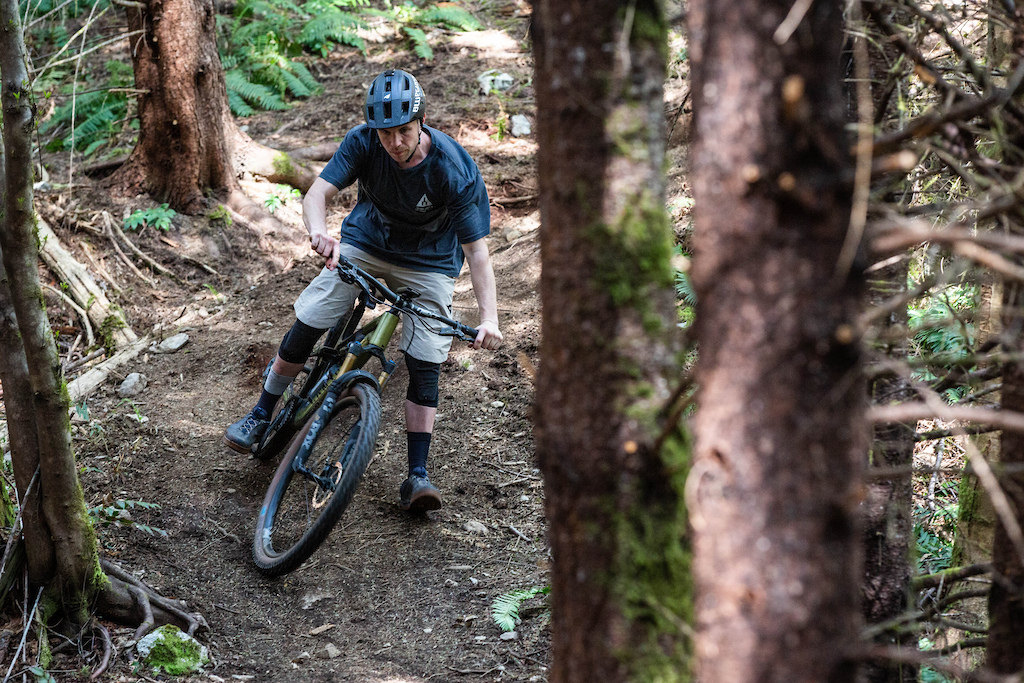
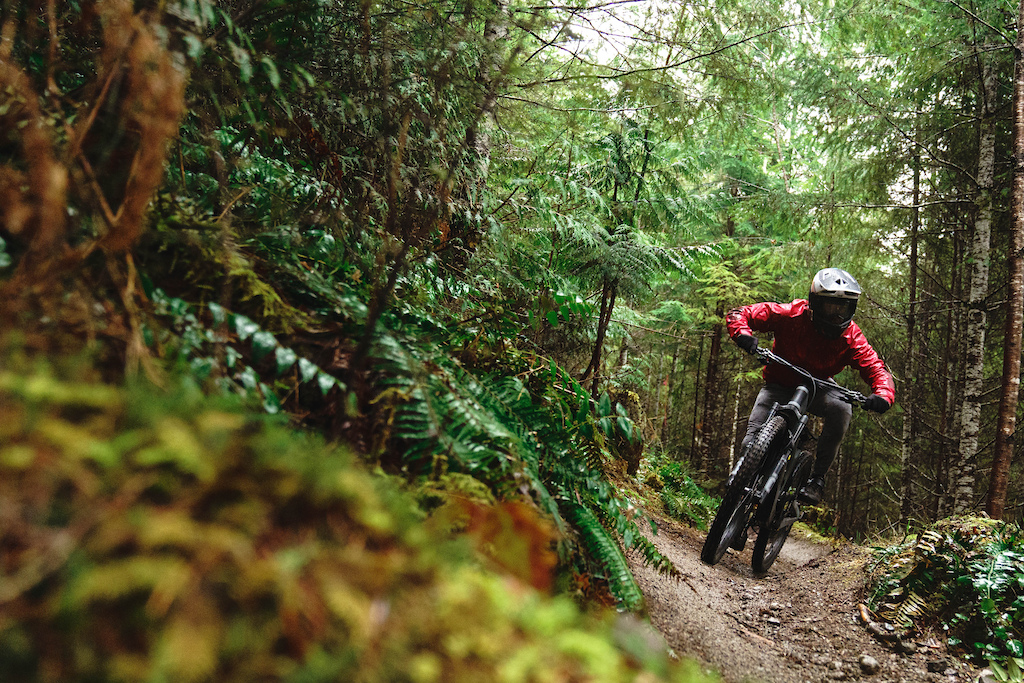

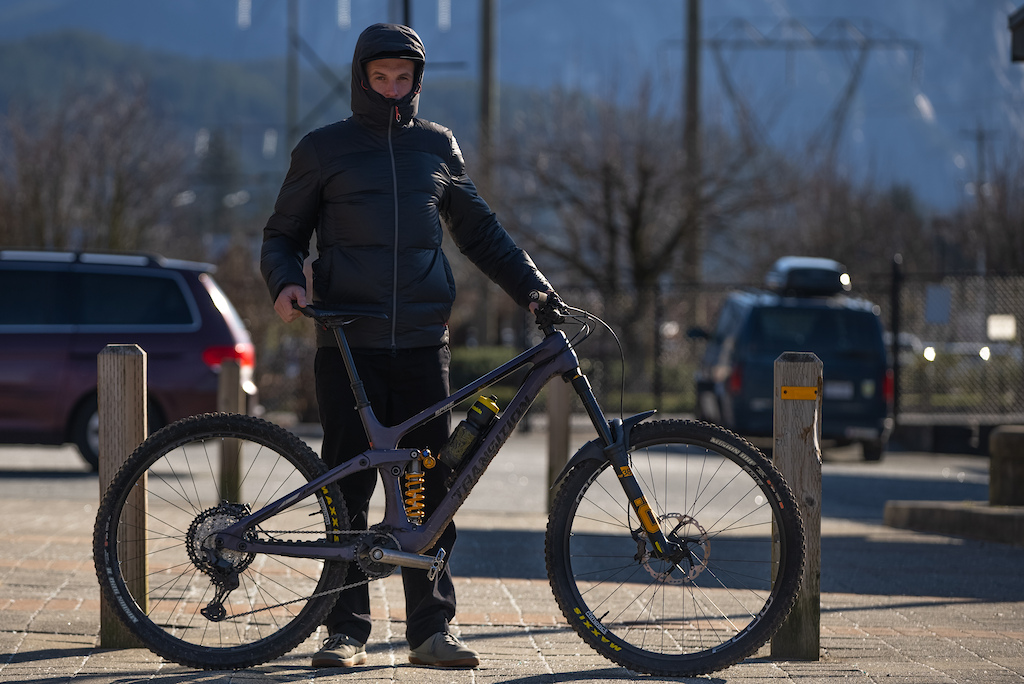
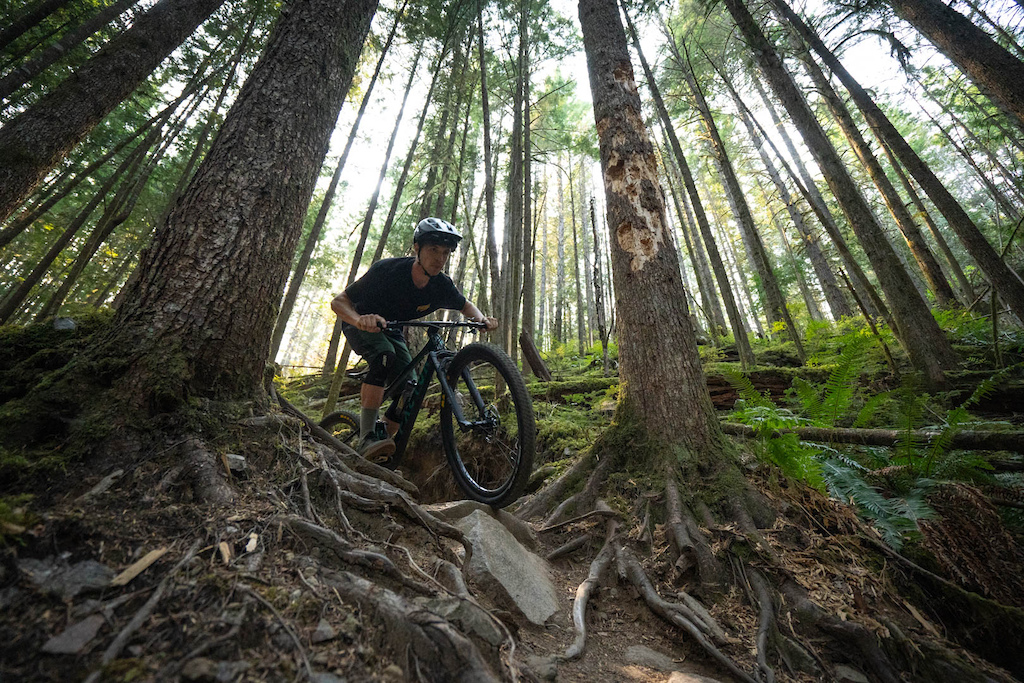
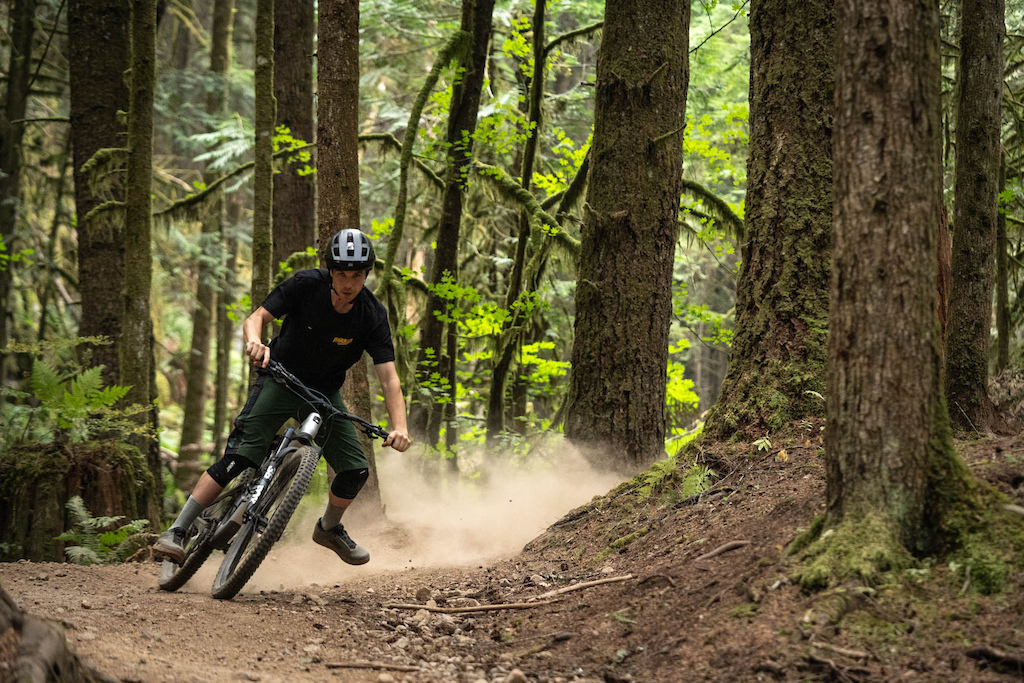
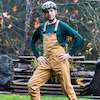
Henry is not only a high-level MTB'er; but MORE IMPORTANTLY, he's A Pulitzer quality writer! He has that rare talent to meld the "science" with the "heart". And to capture and re-inspire in the readers the emotion we've all felt.
PINKBIKE: PLEASE NOTE, AS YOUR INDUSTRY GOES THROUGH A "CONSOLIDATION" AND COST-CUTTING RETRENCHMENT MODE: HENRY IS THE "GEM THAT KEEPS US COMING BACK"!
Henry: Thanks for your inspired and inspirational riding and writing!
I read it, good read. Keep learning, keep riding.
Love to see “content” like this that really taps into who we all are as mountain bikers. Adventure seekers, freedom hunters and at the end of the day… Real people with outside lives. Thank you @henryquinney for this awesome bit of writing and hope to see more stuff like this in the future!
@blackghostbike
IYKYK - NSMB is my fav mtb site.
It can be a bit.....elitist, or pompous, all while trying a bit too hard.....
There whole article about posting spy shots is a good example.
i do love the in depth tear downs, and some of the op-ed stuff.
The pics are usually out of this world, and thats prolly what brings me back so often.
And sorry for your loss. Grief is hard and there (mostly) isn't a right (or wrong) to process. For me, some days bikes helped. Sometimes they didn't. Sometimes friends and community helped. Sometimes they didn't. Sometimes staring blankly at my tv while lying on the couch helped. Usually it didn't. Regardless, it's a process.
More writing like this in 2024!
About 3 years ago, my grandfather and youngest sister died a month apart, between that we found my mom was terminal with FTD (the same form of dementia Bruce Willis has), she died about 11 months later. It pretty much sent me reeling. The months that followed my sisters death, I slowed riding down a lot, because it was all I could think about the entire time I was on the trail, it was miserable riding and the fact my fitness/confidence/skill backslid so far made it even more frustrating. After about six months, what choice I had in the matter went out the window when my mom lost the ability to walk and I had to be on call to help my dad get her off the floor, so my ability to leave the house was gone for a while. Basically this culminated into a 12 month period where I didn't ride at all. The months that followed after moms passing, I could barely get myself out of bed and it felt like everything where my mind had any sense of idleness came with grief. All I could really do to get by each day was focus on things that kept my mind from wandering into idle thought.
Unfortunately, riding bikes came into the category of idle thought. I couldn't get out in the woods to escape it like I had many other things over the years, because rather than being a distraction, it gave my mind the idleness and time to contemplate how shitty the whole thing was. How unfair it was that my 29 y/o sister was gone, how stressful it was on my dad to care for my mom, all the memories and moments over the years, basically anything and everything. As much as I wanted riding to be an escape, it was less of an escape and more of a moment when my grief became concentrated and I just had to walk away from it for a while, which compounded my grief further and I really struggled to find outlets because bikes have been mine for years.
I'm slowly getting back on it. It's been a long road for a number of other reasons, but it also isn't the same for me. My motivation and ability to push to get better have kinda gone out the window, instead I just emphasize getting out and doing what I can, f*ck the rest. I've found that I can focus on the moment a little better, but I still have to be mindful to not let my thoughts wander or spiral, because I know that, even some time later, leads to a darker path.
Best of luck. Sorry for your loss and I hope all of us, myself and you, can find some way to come to terms with these things and find peace on bikes again, but it's not always as easy as I think some people believe. I have to admit that I thought I was a bit odd because it wasn't the outlet some people seem to find, so it's relieving to know I wasn't the only one.
I know that it sounds silly, and I'm sure our experiences are so different, but I tried to cry every day for a while and that helped. I would just sit and meditate and weep. After that, I felt sometimes my mind was clearer to then go and ride without it picking at me so much.
All my love and care - and I hope you find that peace.
When I lost my best friend who was also the one that got me into mountain biking, I had an another dear friend share this wisdom, which was well beyond her years at that point:
Grief is a brick you carry around in your pocket. You can’t ignore it. In the medium term, you might get used to it. Over the long term, you’ll be able to pick away at it with your finger nails and make the brick smaller. But no matter how much you do that, you’ll never get all of the grit and dust out of your pocket. It’ll always be there to remind you of that person.
With everything that happened around his death, I didn't ride for a couple weeks. After the funeral, I went to Bend to visit family and try to clear my head. I rented a bike and rode slowly, eventually taking a break by the river. Looking out over the rapids it sunk in that I would never again have the chance to ride with my friend and it absolutely crushed me. Thinking of that moment brings a lump to my throat and tears to my eyes years later.
I still think of him on a daily basis and his life reminds me not to take any of this for granted. Tomorrow isn't promised to any of us. Tell the people you love that you love them and never pass up the chance for a hug.
3
-Aaron
Riding is my coping from a 20 plus year career that just crashed hard one day and ended. As I was sitting there trying to figure out what I am going to do next, I looked up at my old hard tail just hanging there in the garage, all dusty from not being ridden in almost a decade (Stupid career) and remember the joy I had when I first got it right after of college. I pumped up the 26ers and crushed a trail. Nothing by smiles. Then it fell apart and had to get another bike because it was so outdated.
But "I" was back and happier than ever with a new career and even better relationship with the family. Bikes might not always have the answers, but they sure as hell gives us a moment to just think about ourselves or at least make you smile.
Thank you Henry for the post.
Given the size of the PB community, even if a fraction of these people can relate, it's plenty enough to bring us closer together. Can't stress how many people suffer from grief, undiagnosed ADHD, autism to name a few - stuff like this needs to be given a little more attention especially to those who have the power to educate. It doesn't need to be all encompassing, but for now this is a great start.
I hope you will feel better about your loss, and I hope you will find pure joy on a bike quickly again
Articles and op Ed’s like this are something I really savour and would love to see more of, dare I suggest it might even be what some of the pinkbike staff enjoy more of?
Thanks for sharing your experience with this readership and I feel confident in saying all of us could benefit from more personal, relatable articles like this. It was an excellent read.
I am sorry for your loss and glad the bike, in some way, at some time, helps through the process of grief.
I lost my best friend, rather tragically, a few ago. I like to think about the ways he made me a stronger, more compassionate man. Just maybe, you'll inherit some of Alex's "coolness" as part of him will live with you forever.
I like real life shit.
After my 2nd divorce, I was lost to the world.
I literally couldn’t turn my handlebars. Couldn’t lean.
Took some time. And some work.
But it came back.
Thank you Henry.
We get you.
We got you.
Maybe shouldn't have read it all on my lunchbreak at work though
I have had real problems with riding since losing him. I Can't build up the courage to ride the same features that I used to, despite riding more in the past 3 years then ever before. It has kept me sane, but has also made me quite frustrated with myself. I am slowly getting my mind back up to speed but it sure is tough. It feels like something is in the way. Like something is wrong.
Because something is wrong. My Dad isn't riding there with me.
Later in life he was an editor and journalist for multiple newspapers, magazines and websites. Here is a piece that he wrote years ago just for fun that I hadn't read until after he was gone. It is about us, shredding bikes. It is incredibly touching.
milesdurrie.wordpress.com/2013/02/26/life-on-two-wheels
It can be extremely difficult to step down from the high horse that these chemicals can elevate us to. These moments are often forced upon us unwillingly and hopefully, rare. As negative as these can be, they can make us better and stronger if we would be reminded that the things we do don't have to be just for us, but also for others.
@henryquinney thank you for sharing. These stories are not signs of weaknesses. They let us touch down to the ground where we often need to be. I hope that the next time you go out for a ride, it will be for both Alex and yourself.
Henry comes off as quiet in a lot of videos, but you can tell that he has so much to say, just most of it stays in his head. And I relate a lot to that. But having pieces like this that he writes gives you that small peek into what’s really going on in there.
Beautifully written, Henry. I don’t read a whole lot of “wordy” PB editorials but when I see that Henry wrote it, I always read through. Looking forward to more!
I have not experienced loss like yours in the last few years, but biking is weird. Making it a prime pillar of your identity means that it brings along with it all of the feelings you experience while enjoying it: pain, joy, loss, fear, heartbreak, passion, etc. I can't imagine how difficult it is if the thing you love doing most is entwined with a new void.
However, there are other things in here that I identify with:
1. The feeling of not being cool.
2. Self preservation overriding the thrill of danger.
Positive vibes to you in 2024, Henry! Learn to love biking more even through pain!
One amazing piece I picked up from a UK Farmer and youtube blogger called Olly Harrison is, when asked how we're doing, answer as a percent, rather than the usual lie of "fine" "grand thanks" etc etc.
So next time you bump into someone on the trails, and they ask, "how's it going?", try answering with "I'm 70% (or whatever) today" and let the conversation flow from there. Maybe people are better elsewhere in the world, but (particularly men) in the UK, we suck at talking about what matters, and excel at talking weather.
Excellent articles like this one share grief and emotions, and I'm humbled by the positivity shown, but without Henry making the no doubt hard decision to write and share it, we might not be talking about this very important thing.
I believe I am going through a similar phase after the loss of my parents and experience a similar loss of desire to ride my bikes. I found myself wondering what the heck I was doing on a bike in the middle of the trails despite being on the best trails I know and with friends I love.
Being in the bike industry as well, I feel it creates a kind of guilt not to be enjoying riding while we are so lucky to work with our passion. The colleagues also have a hard time understanding the change in behavior and being our job, there is kind of an expectation to ride, which doesn’t help feeling at ease with it.
I let winter pass by while enjoying other things I like and who knows how the summer will feel like on a bike. I am confident it will come back, but have a hard time not knowing when.. Reading your article helps accepting it.
Would be a pleasure meeting you with both the pleasure to ride and share the passion back at 100%!
Wish you strength for the time to come.
Mariano
Btw, I also had my time being a prick. Happy this is behind me. (or at least, not to realize it anymore
Mental illness is a big part of my story. So is working in the industry and riding. I have found lots of crossover (nearly all of it) between my recovery from my issues and my bicycle as well as the community that surrounds it. Henry makes great points, I have thought that the bicycle was the vehicle to take me away from everything, sometimes it is, not always. I have found what does work for me is having a solid community of people that surround the bicycle, who are involved in the bicycle, ride and also participate in helping others to recover or recognize their need to recover from mental illness etc. Thanks again Henry, be well man.
-Paul
Sometimes moderation improves the experience.
Anyway, with the joke out the way, I can't imagine this is something easy to type out, let alone post on a fairly popular website of your peers. Deffo resonates.
Just kidding. Keep up the good work Henry. Your writing is superb, even if American is not your native tongue. It takes guts to be as opinionated as you are, and to be as open as you are in this article. Your work and presence here are truly appreciated.
2018 was my year to try and ride (and run) from grief and emotion. The passing of my father, then my grandmother. The end of my marriage. Eventually, I ran myself into a fractured femoral neck and a left total hip replacement.
The bike went from a refuge to a burden. I took 2.5 years away, until I truly missed and wanted it again. I've been back 3 years now and it was a much-needed break, and now I can enjoy the sport I love again.
Thank you for sharing your struggles, and good luck moving forward with joy and purpose.
More Softness on Pinkbike please.
Life is hard enough when you ride a hardtail :E
Great article, another gem from the PB crew…..